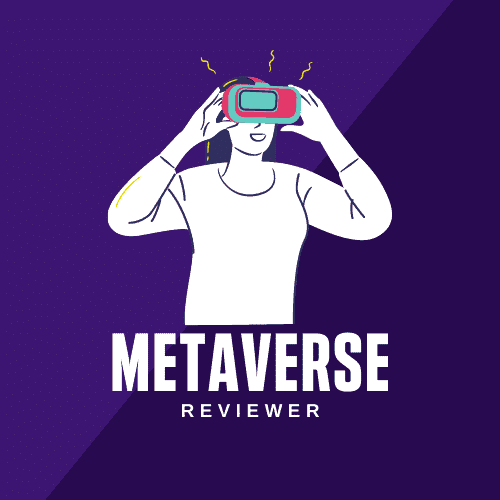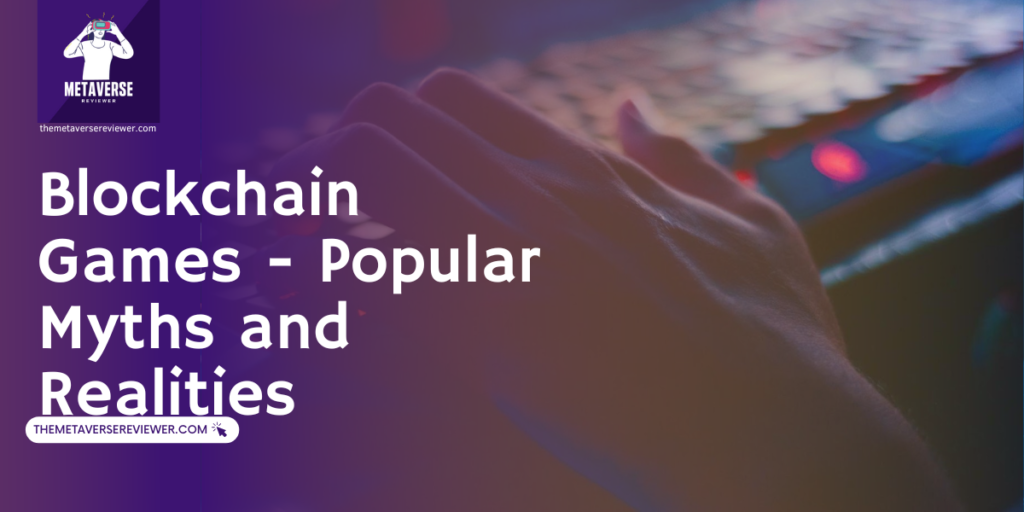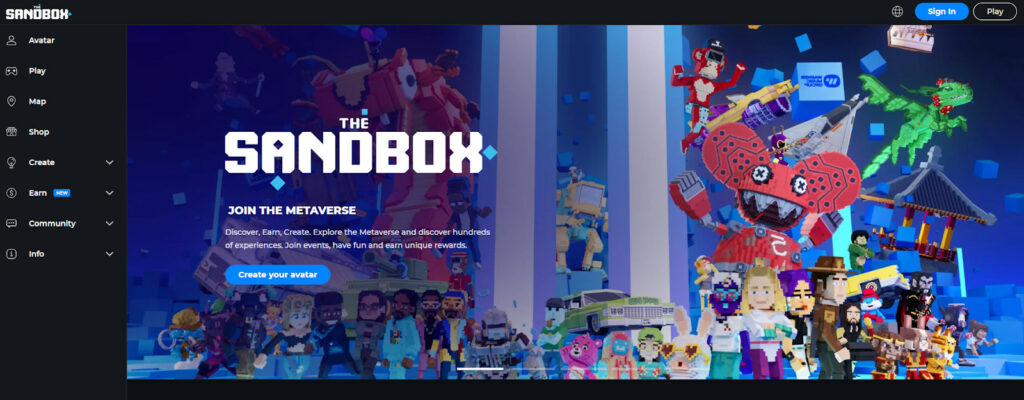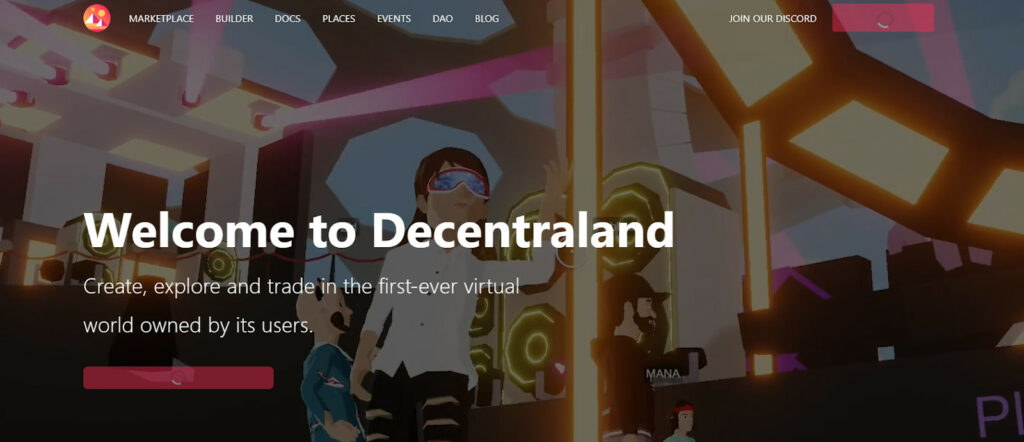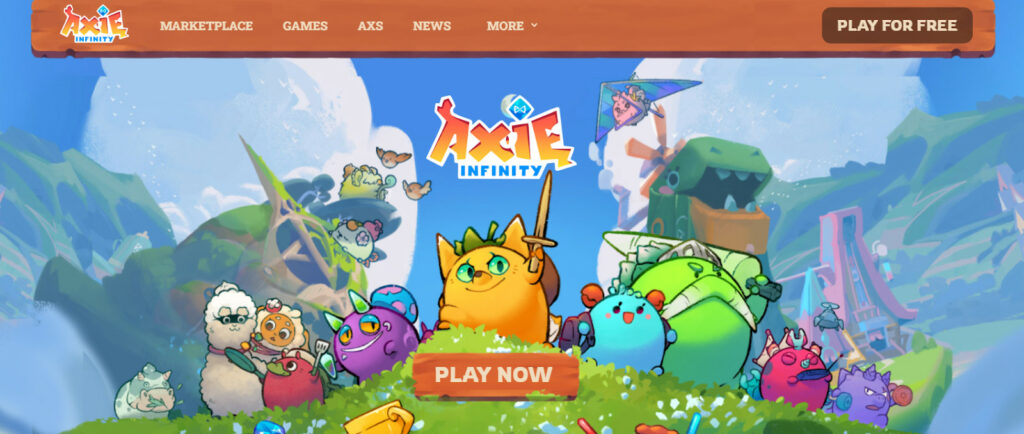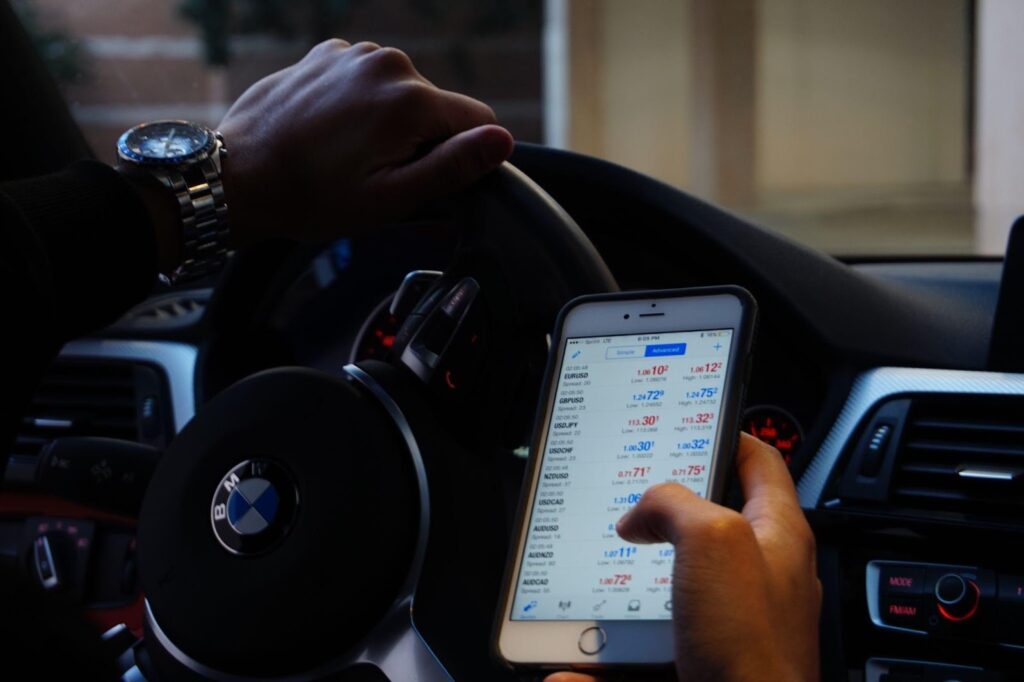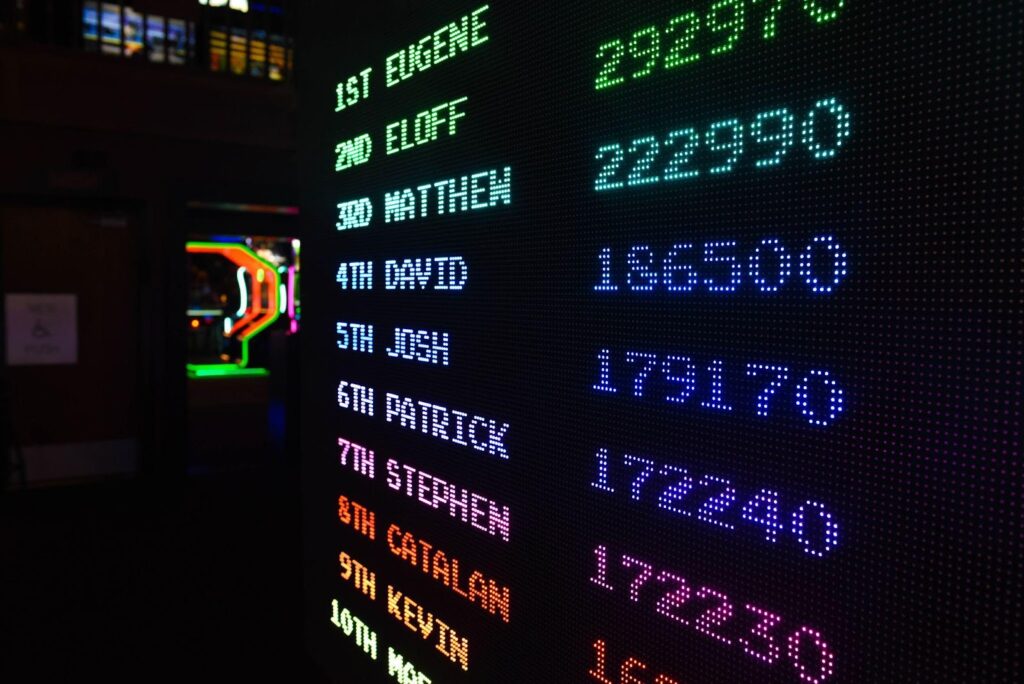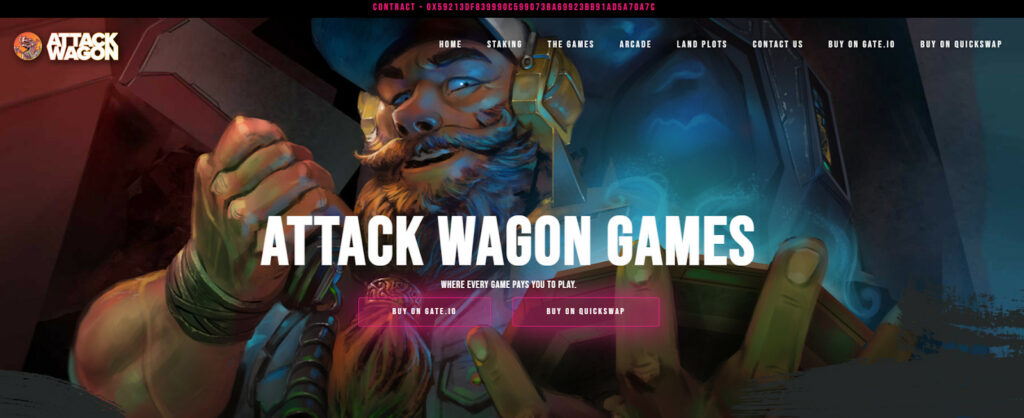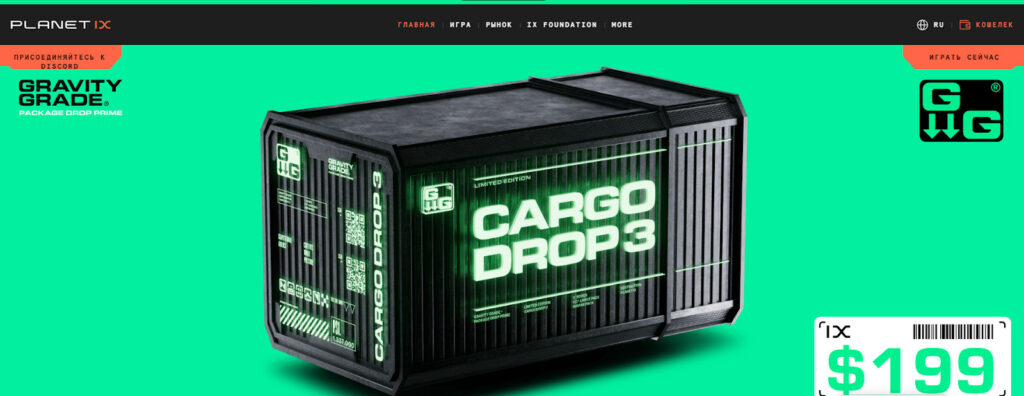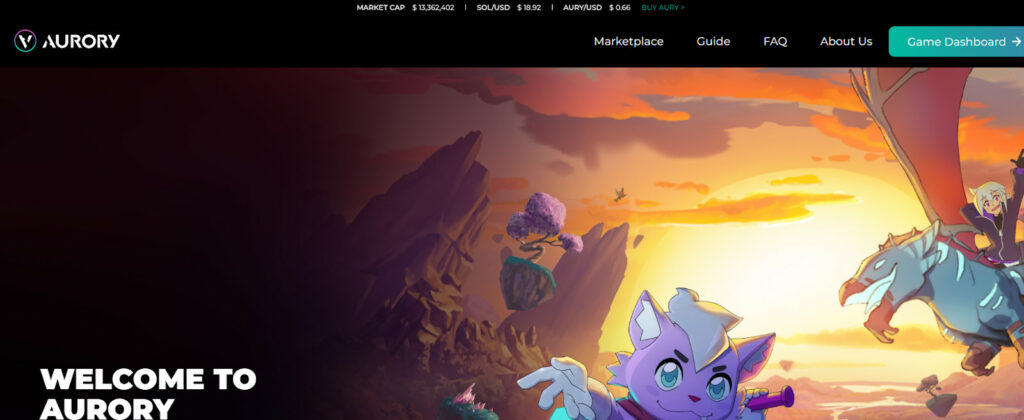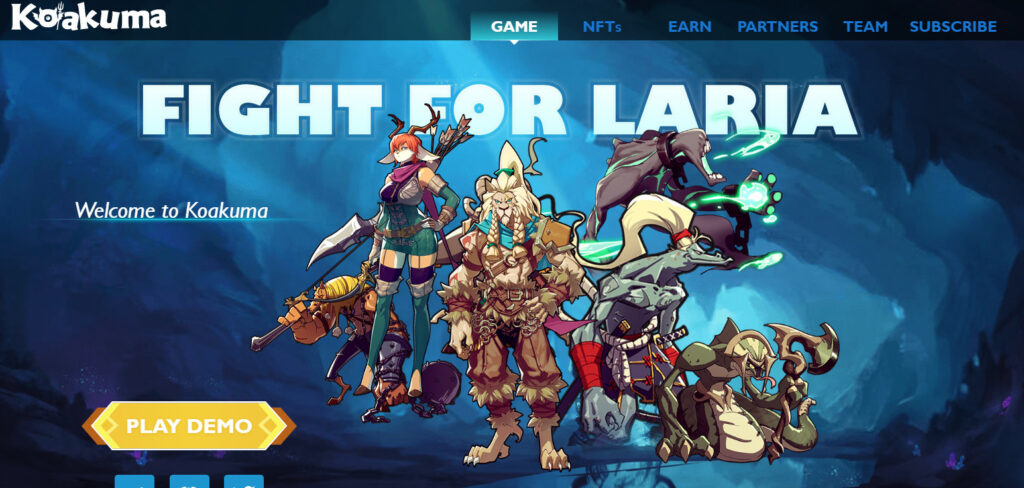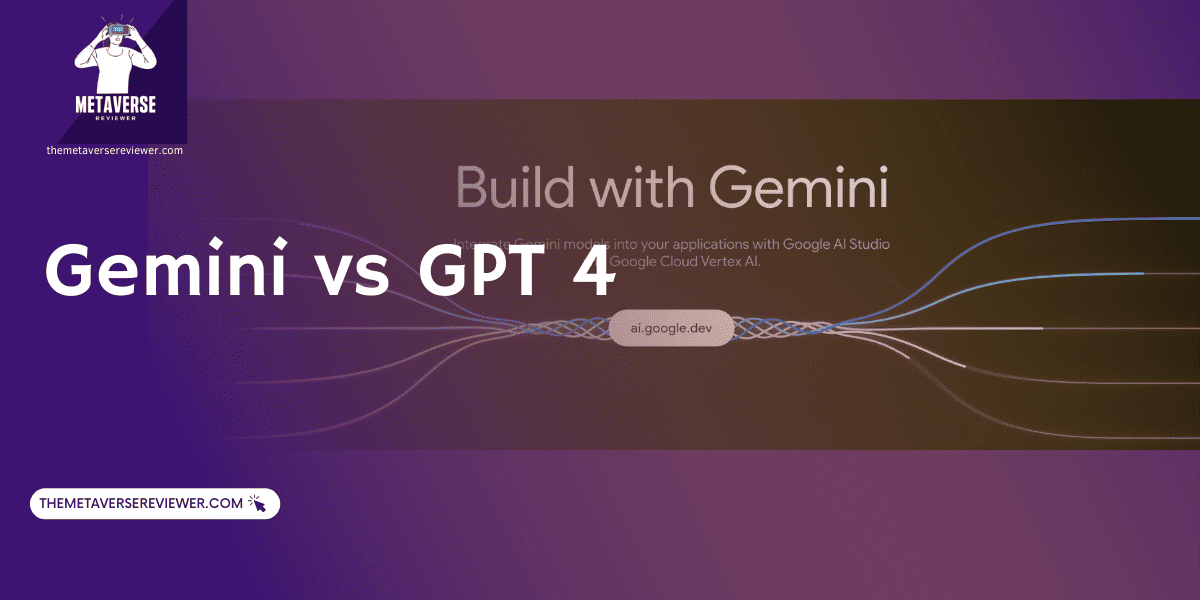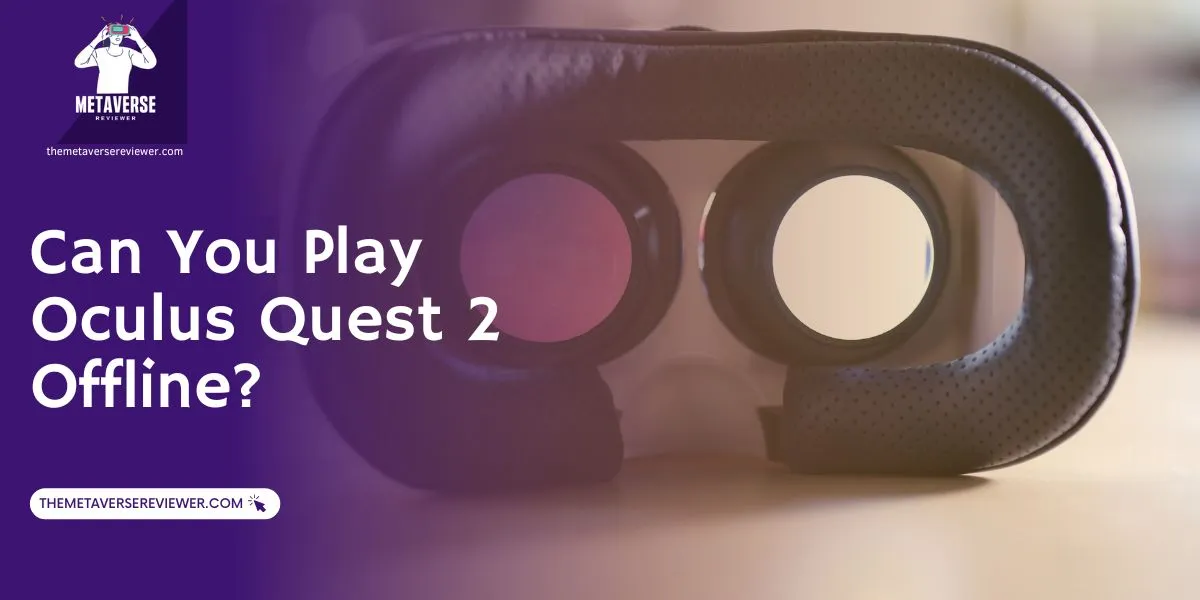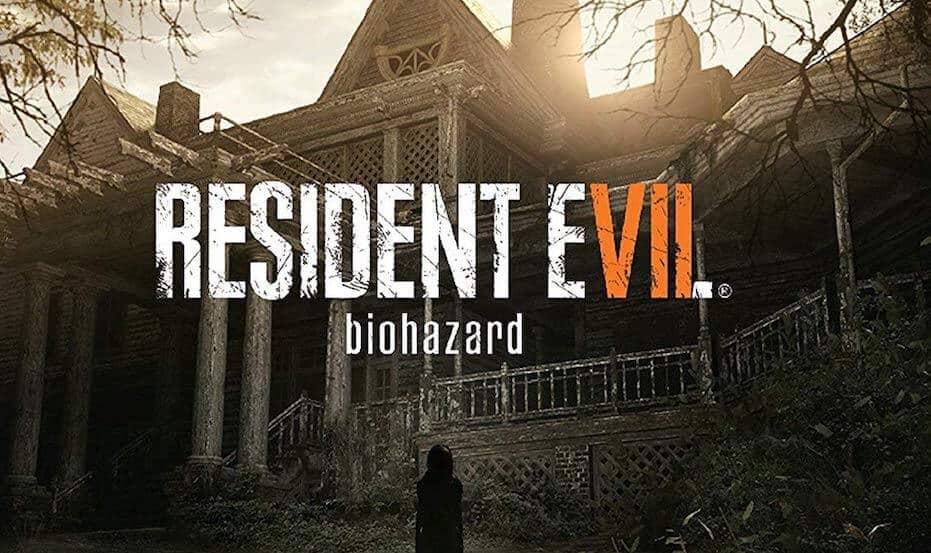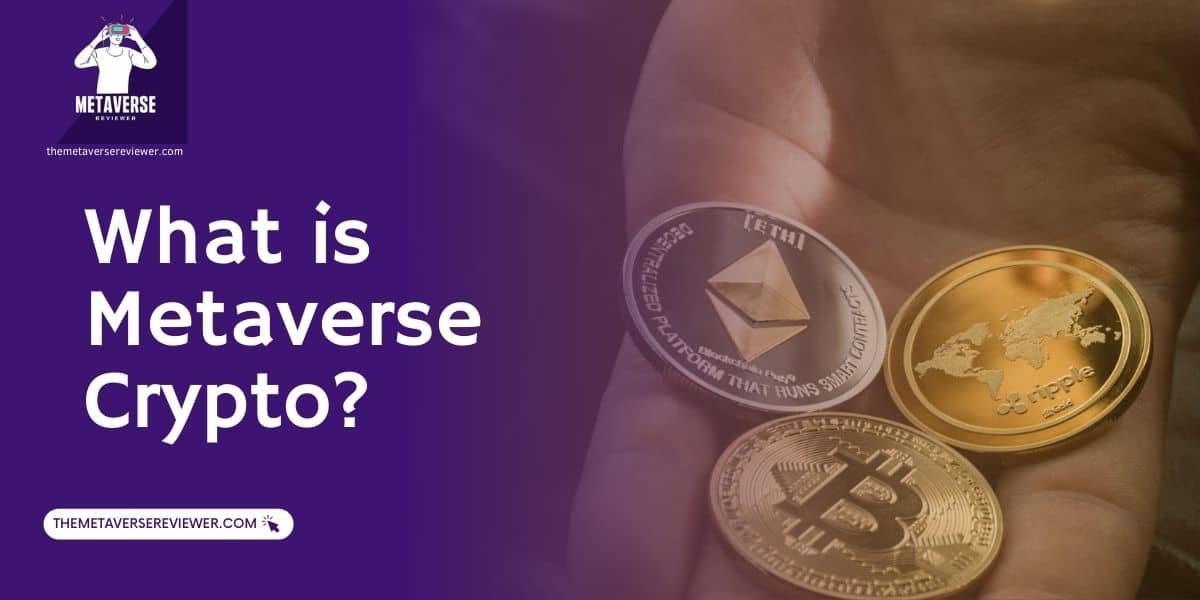Right now, we’re seeing a brand new economy or even a series of interconnected economies emerge in front of our eyes. The new virtual ecosystem has the potential to disrupt traditional markets and business models. It is already revolutionizing a wide range of industries, one of which is the global gaming industry, which as of 2021, comprises over 2.5 billion active gamers worldwide. It is expected that by 2023 there will be 3 billion active gamers in the world, which is massive when you think about the scale of the impact that innovative technologies will have on the industry in the years to come. We’re talking not only about interactive and immersive 3D experiences but also about new monetization schemes, which will enable new business models and revenue streams and inevitably change the course not only of the gaming industry but of the internet, digital media, and even how we think about our physical world.
In the last few years, blockchain technology has been making waves on the web and in media sparking a great deal of excitement and speculation among various industry insiders. For the gaming industry, it can mean the end of traditional gaming and the beginning of a new era of immersive play-to-earn gaming, which we’ll get to in a bit.
Blockchain technology can completely change how we play games in the future. But with the hype of blockchain games come with many myths and misconceptions. And in this article, we propose to take a closer look at the hype surrounding blockchain games and separate myths from reality.
What is blockchain gaming?
Blockchain gaming is a new concept in the gaming industry, providing a vast amount of opportunities for players, developers, and investors. As blockchain technology becomes more established and popular, we can expect to see a growing number of blockchain-based games and virtual worlds emerge, bringing with it new possibilities such as true ownership of in-game assets, virtual real estate, virtual characters, and in-game items (which can be traded on blockchain-powered marketplaces), decentralized governance, community involvement, new revenue streams, and the potential for real-world value creation. Overall, blockchain technology promises to provide a platform for secure and tamper-proof transactions, efficient data storage, and user identity. In doing so, it has the potential to transform the gaming industry by addressing some of its key challenges and creating new business opportunities.
What are some popular blockchain games?
Currently, a few blockchain games have earned accolades for offering unique gameplay and experiences. Here are the top three:
The Sandbox
The Sandbox is a blockchain-based virtual world that gained huge popularity due to its unique approach to user-generated content. At the moment, it is one of the most popular games among gamers, developers, and investors. In the game, users can create and monetize their in-game assets and virtual experiences with NFTs or non-fungible tokens and other blockchain-based assets. The Sandbox has put a lot of its efforts into creating an engaging and dynamic ecosystem with a deep focus on community involvement, where users can socialize and interact with each other and with the broader blockchain-based gaming community. With blockchain technology, Sandbox users have a say in the development and direction of the platform through decentralized governance. However, the development team makes the decisions in consultation with the community.
Decentraland
Decentraland is another popular blockchain-based virtual world where users can experience, create and monetize content, applications, and experiences with true ownership of virtual land and assets enabled by blockchain technology. Decentraland uses decentralized governance through the use of a decentralized autonomous organization (DAO), enabling its users to vote on proposals and therefore play their part in the development and direction of the platform.
Axie Infinity
Axie Infinity is a slightly different game that has reached vast popularity thanks to its unique gameplay mechanics, engaging and dynamic community, and huge potential for earning cryptocurrency. The game is based on blockchain technology, where players have to collect and breed digital creatures called “Axies”. Completing quests and battling their Axies against other players earn them different rewards. The players can earn real money by trading Axies on the marketplace.
Games like The Sandbox, Decentraland, and Axie Infinity have managed to build large and engaging communities thanks to their innovative use of blockchain technology and unique, interactive, and immersive gameplay experiences like nowhere else. These games have developed a perfect venue that promotes social interactions, allowing players to connect and engage with each other, and encourages teamwork to reach common goals. Players fully control their in-game assets, creating a sense of ownership. These games have popularized the concept of play-to-earn games driving high player engagement to earn real-world money and attracting large investments into the game.
As the popularity of blockchain games has increased, so too have the myths and misconceptions surrounding them. Now let’s dive deeper into the topic of today’s article and shed light on popular myths and realities associated with blockchain games.
Myth 1 – Blockchain Games are Just Scam
This is a myth.
Although cases of fraudulent blockchain games and scams in the blockchain gaming industry have happened in the past, we cannot paint all blockchain games with the same brush. Generally speaking, traditional gaming scams and fraudulent activities are not unheard of. As with all emerging technologies, players must be vigilant and research before investing any of their time or money into any game or platform. The rules haven’t changed; everybody has to exercise caution regardless of whether the game uses blockchain technology or not.
Here’s how you can determine if a blockchain game is a scam or not:
- Research the company thoroughly before playing or investing in it. Read about the developers, their track record, and their business model. Check their social media presence and online reviews to evaluate the company’s credibility.
- Ensure you have a clear idea of the game’s economy and system for buying, selling, and trading virtual assets. The company should provide all information regarding transaction fees, withdrawal limits, and other relevant details.
- Don’t overlook the game’s whitepaper or technical documents. Make sure the company is really using blockchain technology, and it provides true ownership of virtual assets.
- Check if the game has an open community of players and developers, which is always the case with a blockchain-based game.
- Be mindful of warning signs. Red flags could be any promises of guaranteed return, aggressive sales techniques, or claims that seem unrealistic.
In fact, there are many legitimate and innovative blockchain games developed by reputable and established companies with solid business models and transparent operations, such as Pixowl Inc, a subsidiary of Animoca Brands, that developed one of the most popular blockchain games, The Sandbox.
Some other reputable developers in the blockchain gaming industry include Decentraland, Ubisoft, Enjin, and others.
Myth 2 – Blockchain games are only for cryptocurrency traders and investors
This is a myth.
While blockchain games certainly present an interesting opportunity and venue for cryptocurrency traders, investors, and enthusiasts, they are not limited to this audience. Many blockchain games are designed in a way to be easily accessible and user-friendly to all gaming enthusiasts, therefore not necessarily requiring any cryptocurrency knowledge. Although some games utilize cryptocurrency as in-game currency, they are usually easily acquired by completing quests or trading in-game assets.
Moreover, a large number of blockchain games facilitate the monetization of in-game content or the purchase of currency by opting for traditional payment methods like credit cards or PayPal. Therefore, vast knowledge of cryptocurrencies is optional in most cases, and a player can easily do without it. Before playing any blockchain game, it is always best to get acquainted with the game’s business model.
Myth 3 – Blockchain games cannot be played on a browser
This is a myth.
People that are not familiar with blockchain games tend to believe that blockchain games can only be played on special platforms rather than on a browser or phone. This is a misconception, as many blockchain games are designed to be played directly in a web browser. There is usually no need to install any particular software or plugin.
Playing blockchain games in a web browser or phone is possible with web 3.0 technology that utilizes tools and protocols to enable direct interaction with the blockchain. Consequently, players can easily access decentralized gaming platforms, manage their accounts in the blockchain, and have real-time interactions in the game.
CryptoKitties, Axie Infinity, and Gods Unchained are just some of the popular and widely accessible blockchain-based games you can play on a web browser using any device you have anywhere in the world.
Myth 4 – You can make money playing blockchain games
This is true.
You can actually make money playing blockchain games.
There are a few ways you can earn money playing blockchain games. Some of the most popular ones are:
You can earn in-game rewards, currency, or digital assets that have real-world value by completing quests, tasks, or challenges, achieving milestones within the game, or winning battles. Over the last few years, the concept of play-to-earn games has generated a lot of buzz in gaming and cryptocurrency communities. Although not all play-to-earn games are necessarily blockchain-based, these two concepts are often referred to as the same thing. In fact, blockchain games have popularized the concept of play-to-earn games by enabling new monetization schemes, such as the use of non-fungible tokens (NFTs) and cryptocurrencies. Many blockchain games are using this play-to-earn possibility to their advantage, attracting huge player engagement and investments into the game. By playing blockchain games, players can generate cryptocurrency, which can then be exchanged for fiat currency or real-world money.
You can make money selling NFTs or in-game assets on such marketplaces as OpenSea or Rarible for real-world currency. Play-to-earn blockchain games have become appealing to gamers and investors who purchase plots of land or NFTs, hoping to profit from the increasing demand for these assets on various marketplaces. The value of NFTs can fluctuate over time, so gamers and investors can buy NFTs when the price is low and sell them at a high price when their value increases. This common NFT trading strategy allows traders to profit from buying and selling NFTs. As a competent trader, you need to analyze the market and identify NFTs whose price has the potential to grow over time. You can acquire these NFTs at low prices by participating in auctions or holding them long-term, increasing their rarity and exclusivity.
You can participate in game tournaments and win cash prizes. Some blockchain games hold tournaments and competitions that allow players to showcase their skills and earn money. A good example is The Sandbox. This blockchain game provides many tournaments and competitions to attract community engagement, incentivize players, improve player retention, and promote the game.
Myth 5 – All blockchain games are gambling games
This is a myth.
It is incorrect to assume that all blockchain games are gambling games by default. It is correct that many blockchain games have elements of betting or games of chance, such as slots, roulette, and sports betting, allowing players to win cryptocurrencies or other digital assets by playing. And there are a few reasons behind that, such as:
- Monetization of digital assets with real-world value thanks to blockchain technology, which serves as an incentive for players to invest their time and money to start generating a return on their investment
- To add an extra layer of excitement and unpredictability to the gameplay. Some blockchain games use randomized loot boxes or card packs, presenting players with a chance at getting rare or valuable digital assets.
- Blockchain technology blurs the line between gaming and gambling, causing regulatory ambiguity and enabling players to gamble without restrictions and oversight of traditional gambling laws.
However, as mentioned previously, it is a myth that all blockchain games are gambling games.
And here are some arguments for that:
- Some blockchain games have skill-based gameplay, meaning that the players should use their skills and knowledge to execute complex strategies and put other less-skilled players in unfavorable positions to win. In such games, relying on luck or chance wouldn’t get them anywhere at best or make them lose the game altogether.
- Not all blockchain games have real-world money involved in their gameplay, meaning that players don’t risk their own money and cannot make any profits outside of the game. Such games use digital currencies without any real-world value whatsoever.
- Some blockchain games focus on building a community and improving social interactions instead of making a profit.
- A big majority of blockchain games comply with traditional gambling laws and regulations, so they aren’t considered gambling in the eyes of the law. However, these games fall under strict anti-money laundering regulations, and they must obtain mandatory licenses and be subjected to audits and other types of oversight activities.
Myth 6 – Blockchain games are too complicated and only for hardcore players
This is a myth.
Although blockchain technology is more complex, most blockchain games are designed in such a way as to attract players of all skill levels and backgrounds. The complexity level depends on many factors, such as the purpose and intended use of the game, the mechanics, the business model, monetization schemes & payment methods, user interface design, and others.
What makes blockchain games more complex is:
Blockchain technology – having a basic understanding of blockchain technology is sometimes more than enough to start playing blockchain games. Those who are unfamiliar with it might need help understanding such concepts as decentralization, digital wallets, digital assets, NFTs, encryption, and others. Normally blockchain games offer instructions for first-time players to help them familiarize themselves with the game mechanics faster.
Digital assets & NFTs – Most blockchain games operate with digital assets like NFTs, and therefore knowledge of how to store, sell or buy digital assets may be needed.
Transaction fees – Transaction fees are an indispensable part of blockchain transactions inside the game. Understanding how these fees work and how to manage them is also important.
Account security – To ensure all personal data is stored safely and all digital assets are protected, players may need to learn how to use security features such as multi-factor authentication and digital wallets.
However, most blockchain games are designed to be user-friendly and easy to play. They provide tutorials to help first-time players navigate the game and understand the technology behind blockchain. It is in their best interest to attract as many players as possible. As blockchain games are becoming increasingly popular, game developers are searching for new ways to make blockchain technology more accessible to a broader audience so they try to design games with clearer instructions, more straightforward game mechanics, and better graphics and interfaces.
Myth 7 – Blockchain games are just a passing fad and are not worth it
This is a myth.
Although a lot of hype has driven the initial interest in blockchain-based games, the technology they use is very promising, with a huge potential to revolutionize many industries, gaming being one of them.
Here we can distinguish a few key reasons:
Profit potential – blockchain technology has made the concept of play-to-earn games very popular in the last few years, allowing users to earn in-game rewards as they play, complete tasks and quests, and win battles. These rewards are usually digital assets or in-game currency. Players can trade their digital assets on marketplaces or exchange in-game currency for fiat or real-world money on various platforms or exchanges supporting the specific currency. Blockchain gaming has also opened up a new world of opportunities for investors who can purchase exclusive digital assets and real estate, as well as invest in gaming companies at the forefront of innovation in blockchain-based gaming technologies, in platforms, or gaming funds for diversification of their investment portfolio.
Transparency and security – as opposed to traditional gaming, where players have very little insight into the game mechanics, blockchain gaming provides absolute transparency of all game-related transactions and actions. Everybody can see how the game operates and verify how fair is the game’s outcome. The increased transparency and security of the game reassure players that their personal data and digital assets are safe and secure and that fraud, cheating, or hacking is highly unlikely.
Community building – blockchain games are player-driven ecosystems that focus on building communities of players, encouraging social interactions, and incentivizing players to work together to achieve shared goals and objectives. Consequently, high player engagement and retention allow these games to build solid authority in the industry, constantly working on developing more immersive and enjoyable experiences for the players.
Myth 8 – Blockchain games are too expensive to play
It is partially a myth.
Despite some blockchain games being generally more expensive than traditional games, it is incorrect to say that all are too expensive.
In order to play some blockchain games, you might be required to pay high entry fees or buy digital assets or cryptocurrencies to start. Others might have low fees or no fees at all, and the players may be able to earn in-game assets throughout gameplay.
Here’s an example:
- You can experience Decentraland game for free, but in order to play, you need to buy a plot of LAND. The cheapest plot of land sells at approximately $13,630, and the most expensive sells at around $57,000.
- In sharp contrast, AllienWorlds is a free-to-play sci-fi mining blockchain-based game. To get full access to all the in-game features, players should pay about $10.
Blockchain games provide more immersive and interactive experiences than traditional games, which makes them worth their costs. Also, the use of blockchain technology might reduce transaction costs and increase efficiency in the game’s ecosystem, potentially making the cost of playing a blockchain game more affordable in the long term.
Generally speaking, the cost of playing blockchain games will depend on several factors, such as the game’s mechanics, its economy, how exclusive the game is, and how rare its digital assets are. It is a good practice to check the game’s website before playing the game to avoid any surprises or hidden costs.
Here is a list of free blockchain games you can play today:
PLANET IX – a free-to-play strategy blockchain game that uses non-fungible tokens (NFTs) you have to collect in the game. The game’s playing field is a virtual copy of our planet where the player, an Agent of Change, aims to restore a damaged planet to its former lush, blue-green state.
Aurory – a free-to-play MMORPG game based on the Solana blockchain where players have to complete quests, discover lost relics, defeat enemies, and win battles using creatures called “Nefties.”
Koakuma – a free-to-play medieval fantasy 3D MMORPG game developed by Koakuma Studio with immersive combat systems and mechanics within a graphics-intensive metaverse. Players have to fight epic battles using their NFT creatures in the game.
Myth 8 – Blockchain games are a tool for money laundering
This is a myth.
Another common misconception is that blockchain games are a tool for money laundering and other illicit activities. Although some individuals might use some blockchain or crypto games to cover such activities, generally speaking, blockchain games don’t appear to be more susceptible than any other traditional online games. Even before the introduction and rising popularity of play-to-earn blockchain games, anti-money laundering experts have been talking about the risks of financial crime in online gaming. According to the researchers at the Royal United Services Institute, the exchange of in-game items that have a real-life value outside the game, such as artifacts, virtual money, tools, or clothing, with fiat currency, can look appealing to criminals looking to launder illicit funds.
For this reason, many blockchain games have implemented know-your-customer (KYC), and anti-money laundering (AML) measures in place, which include identification documents to be provided by players at registration, monitoring of all transactions as well as informing authorities of any suspicious activity.
Blockchain technology gives more transparency and security to financial transactions, making it much more difficult for anybody to use these games as venues for money laundering or illicit activities. Thanks to blockchain technology, these games keep a permanent and tamper-proof record of all transactions happening on the blockchain, and they have a good management system for all digital assets. Therefore, it allows the authorities to easily detect suspicious activity, which is highly unlikely.
Myth 9 – Blockchain games are illegal
This is a myth.
While there might be blockchain games that involve illegal activities or violate laws and regulations, it is incorrect to assume that all blockchain games are like this.
When we talk about illegal activities in blockchain games, we usually refer to online gambling in jurisdictions where it is illegal, money laundering, illegal trading of digital assets, or violation of copyright and intellectual property laws that protect the game developers’ creative works, including the game’s code, art, and music.
The legality of blockchain games may depend on a given jurisdiction’s specific laws and regulations. Some countries or regions may have laws that prohibit or restrict the use of blockchain technology or digital assets in gaming. On top of that, some blockchain games may operate in jurisdictions with regulatory ambiguity where the legality of certain in-game economies and mechanics is not well-defined.
In the US, gambling is a regulated activity by the state, and each state has its own laws governing what falls under gambling. Some states’ laws might be very strict, and others may be more relaxed in their approach. Before playing any blockchain games, it is always best to be aware of the gambling laws in your state or country.
Now it is important to understand that only a small share of blockchain games might be illegal.
Most blockchain games are legal and legitimate, and therefore they are created and operated according to the laws and regulations of their respective jurisdictions. To comply, they have to implement specific measures like know-your-customer (KYC) and anti-money laundering (AML) to prevent illicit activities (as we discussed above). Many blockchain game developers are already established companies with a reputation to uphold. They have invested significant resources so that their games are legal and legitimate. They wouldn’t damage their reputation or risk legal repercussions by engaging in illegal or unethical practices. Otherwise, this could harm their business, which doesn’t look like a good long-term strategy.
In conclusion
The popularity of blockchain games has increased tremendously in the last few years, which has given rise to a number of myths and misconceptions, many of them being largely unfounded. As we’re trying to navigate ourselves in this new industry of immersive and interactive experiences, we should be able to separate what is true from fiction. Yes, it is true that some concerns and risks associated with blockchain games may be legitimate, but we can’t attribute them to all blockchain games. This will be too far-fetched and misleading. Before playing any blockchain game, it is important to research and evaluate each game in detail rather than making any kind of generalizations based on unfounded misconceptions or incomplete information.
- Oculus Rift DK2 Review – All Features, Why Discontinued? - November 8, 2023
- Best Metaverse Games for 2024 - July 10, 2023
- How to Factory Reset Oculus Quest 2 - June 24, 2023
